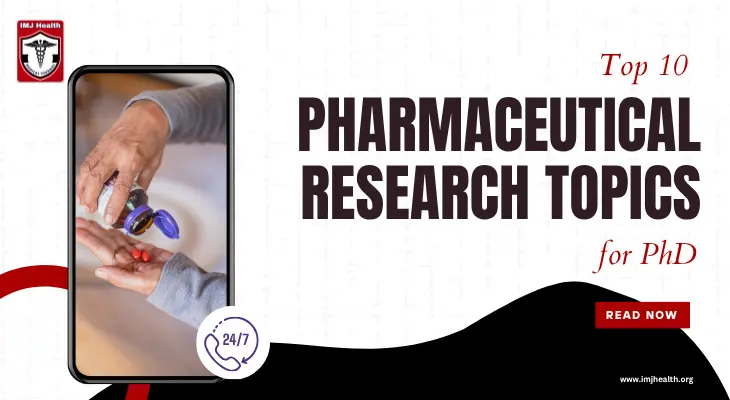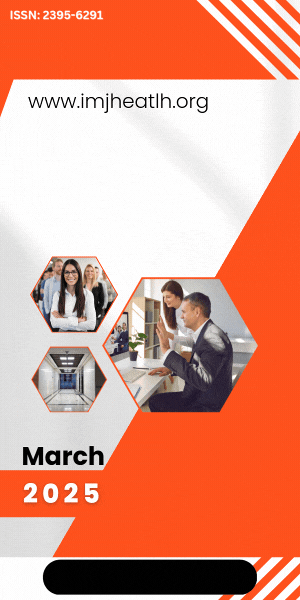Top 10 Pharmaceutical Research Topics for PhD

Explore the world’s top universities for pursuing a PhD in Pharmaceutical Sciences. From Harvard to NUS, discover programs offering cutting-edge research, full scholarships, and global opportunities. Ideal for candidates looking to specialize in drug development, pharmacology, and innovative therapeutics through impactful research and academic excellence.
Choosing the right topic for your PhD in pharmaceuticals can be the key to a successful research journey. With so many advancements happening in medicine and drug development, it's important to select a topic that is both relevant and impactful. Below, we’ve shared ten promising areas that are not only trending but also offer strong academic and practical value.
1. Drug Delivery Systems
What it is:
Drug delivery systems are methods used to get medicines into the body in a way that they work best. Traditionally, pills or injections were common, but now researchers are developing advanced methods like:
- Nano-carriers (tiny particles that carry the drug directly to affected cells)
- Transdermal patches (stickers that deliver medicine through the skin)
- Inhalers or oral thin films
- Smart delivery that responds to body temperature or pH
Why it matters:
These innovations make drugs more effective, reduce side effects, and improve patient comfort.
PhD scope:
Research can focus on improving bioavailability, targeted delivery, or minimizing toxicity.
Read More:
Drug Delivery Systems: Innovations, Importance, and Research Scope2. Pharmacogenomics
What it is:
Pharmacogenomics studies how a person’s genetic makeup affects how they respond to drugs. Not everyone reacts the same way to a medicine, and genes play a big role in that.
Why it matters:
It leads to personalized medicine, where treatment is tailored to each individual’s DNA—ensuring better results with fewer side effects.
PhD scope:
Work in this field involves gene-drug interaction mapping, designing genetic screening tools, or integrating genomics into healthcare systems.
3. Antibiotic Resistance
What it is:
Antibiotic resistance happens when bacteria no longer respond to the antibiotics meant to kill them. This is a global health threat.
Why it matters:
Without effective antibiotics, common infections and surgeries could become deadly. New drugs or treatment strategies are urgently needed.
PhD scope:
You can work on novel antibiotics, combination therapies, or alternative approaches like bacteriophage therapy or antimicrobial peptides.
4. Cancer Pharmacology
What it is:
This area focuses on studying drugs that treat different types of cancer. It also investigates how tumors grow and how drugs can stop them.
Why it matters:
Cancer remains one of the leading causes of death. New treatments aim to be more effective and less harmful.
PhD scope:
You can research targeted therapies, immune checkpoint inhibitors, drug resistance in cancer, or tumor microenvironments.
5. Herbal and Natural Medicines
What it is:
This topic explores using plants and natural sources for healing. It blends traditional remedies with scientific validation.
Why it matters:
Natural medicines are widely used but often lack scientific backing. Research here brings safety and standardization.
PhD scope:
Work includes isolating active compounds, conducting clinical trials, or studying herb-drug interactions.
6. Neuropharmacology
What it is:
This field studies how drugs affect the brain and nervous system. It covers mental health disorders, neurodegenerative diseases, and more.
Why it matters:
Diseases like Alzheimer’s, Parkinson’s, anxiety, or depression affect millions, and treatment is often limited or not long-lasting.
PhD scope:
Explore neurotransmitter pathways, brain-targeted drug delivery, or new therapies for psychiatric and neurological conditions.
7. Vaccine Development
What it is:
This area deals with creating vaccines that protect people from infectious diseases. Research covers all stages—discovery, design, production, and testing.
Why it matters:
The COVID-19 pandemic showed the importance of fast and effective vaccine development. Vaccine technology is now advancing rapidly.
PhD scope:
Study mRNA vaccines, viral vector platforms, thermostable vaccines for remote areas, or immune response modeling.
8. Clinical Trials and Drug Safety
What it is:
Clinical trials are used to test if a drug is safe and effective. Drug safety (pharmacovigilance) monitors side effects even after a drug hits the market.
Why it matters:
Every medicine must be proven safe for public use. Mistakes can be fatal, so strict testing and monitoring are essential.
PhD scope:
Research could involve clinical trial design, real-world safety data analysis, or AI in predicting side effects.
9. Nanotechnology in Pharmacy
What it is:
Nanotechnology uses very tiny materials to improve drug performance. These particles can enter cells more easily and deliver drugs precisely.
Why it matters:
It can help reduce side effects and make treatment more focused, especially in cancer or brain diseases.
PhD scope:
Study nanoparticles, liposomes, quantum dots, or biosensors for advanced treatment delivery.
10. Biologics and Biosimilars
What it is:
Biologics are medicines made from living cells (like insulin, antibodies, vaccines). Biosimilars are their cheaper, near-identical versions.
Why it matters:
They treat complex diseases but are expensive. Biosimilars make them affordable without losing quality.
PhD scope:
Research production methods, regulatory challenges, or how to ensure biosimilarity and efficacy in patient treatment.
Scope for PhD Scholars
These research areas are not only academically rich but also offer great career opportunities in pharmaceutical companies, research labs, regulatory bodies, and healthcare startups. With governments and industries investing more in health innovation, PhD holders in these fields are in high demand.
Top Institutions for PhD in Pharmaceutical Research
1. Harvard University (USA)
Renowned for excellence in pharmacology and translational medicine, Harvard leads in drug discovery and systems pharmacology research. It consistently ranks #1 in pharmacy & pharmaceutical science globally.
2. University of Oxford (UK)
Oxford’s Department of Pharmacology offers DPhil programs with strengths in molecular pharmacology, pharmacogenetics, neuropharmacology, and drug transport mechanisms.
3. University College London (UCL, UK)
The UCL School of Pharmacy is among world’s top-ranked, with leading research in drug delivery, pharmacognosy, cancer pharmacology, and antibiotic resistance.
4. University of Cambridge (UK)
Cambridge’s pharmaceutical sciences department excels in drug design, delivery systems, pharmacokinetics, and medicinal chemistry, with strong interdisciplinary innovation.
5. MIT (Massachusetts Institute of Technology, USA)
MIT’s interdisciplinary PhD programs in pharmaceutical sciences and engineering emphasize drug formulation, manufacturing processes, and molecular biotechnology.
6. University of California, San Francisco (UCSF, USA)
UCSF School of Pharmacy offers top-rated doctoral programs in pharmaceutical sciences, translational medicine, and pharmacogenomics, supported by its strong biomedical research ecosystem.
7. Monash University (Australia)
Known for pharmaceutical technology and clinical pharmacy research, Monash ranks among the world’s best in pharmacy & pharmacology and is well-connected to the biotech industry.
8. Johns Hopkins University (USA)
A leader in public health and pharmacology research, JHU integrates pharmacy with clinical care and pharmaceutical outcomes science. Frequently ranked among the top globally.
9. University of Toronto (Canada)
The Leslie Dan Faculty of Pharmacy is Canada’s largest school, known for its research in drug formulation, medicinal chemistry, and interdisciplinary pharmaceutical innovation.
10. Karolinska Institute (Sweden)
A prestigious medical university focused on pharmacogenetics, neuropharmacology, and pain research. It also supports industry-linked PhD models in the Scandinavian Medicon Valley cluster.
Whether you're targeting immunology, drug delivery, pharmacogenomics, or regulatory science, these institutions offer world-class training and PhD opportunities. They represent the pinnacle of pharmaceutical research, interdisciplinary collaboration, and global impact.
Frequently Asked Questions (FAQs):
1. What are the top universities for a PhD in Pharmaceutical Sciences?
Some of the leading institutions include Harvard University, University of Cambridge, University of Oxford, University of California—San Francisco (UCSF), and National University of Singapore (NUS).
2. What is the duration of a PhD in Pharmaceutical Sciences?
Typically, a PhD takes 3–5 years to complete, depending on the research focus and institution.
3. What are the eligibility criteria for admission?
Applicants usually need a Master’s degree (or equivalent) in Pharmacy, Pharmaceutical Sciences, Chemistry, or related fields, along with strong academic records and research experience.
4. Are scholarships available for international students?
Yes, most top universities offer fully funded PhD programs or scholarships that cover tuition and provide a stipend for living expenses.
5. What are the main areas of research in Pharmaceutical PhDs?
Common research areas include drug discovery, pharmacokinetics, drug delivery systems, clinical pharmacy, pharmacology, and toxicology.
6. Is research experience required before applying?
Having prior research experience, such as a research project or thesis during a Master’s degree, significantly strengthens your application.
7. What career opportunities are available after completing a PhD?
Graduates can work in academic research, pharmaceutical companies, regulatory agencies, healthcare organizations, or pursue postdoctoral studies.
8. Is it possible to pursue a PhD part-time or online?
Some universities offer part-time PhD options, but full-time on-campus programs are more common for research-intensive fields like pharmaceuticals.
9. How important is the GRE or TOEFL/IELTS for admission?
English proficiency tests (TOEFL/IELTS) are usually mandatory for international students. Some universities may require the GRE, especially in the US.
10. Can I contact a professor before applying?
Yes, it’s often encouraged to contact potential supervisors whose research aligns with your interests before submitting your application.
Recommended Read:
- How to Apply for the PhD Scholarships Worldwide in Medicine and Pharmaceuticals
- Top Web of Science (Clarivate) Indexed Medical and Pharmaceutical Journals
- The Future of Medicine: Top 10 Trending Research Areas
- Top Pharmaceutical Journals for Publishing Research
- Top 10 Medical Research Topics for Thesis
- Top Springer Medical Journals: Challenges & Alternative Publishing with IMJ Health
- Top Scopus-Indexed Medical Journals: Challenges & Alternative Publishing with IMJ Health
- What is PubMed? Exploring the Premier Biomedical Literature Database
Contact Medical Journal: IMJ Health
- Website: www.imjhealth.org
- Editor-in-Chief: Dr. Kusum Lata Gaur | MBBS, MD(PSM), CIC (IGNOU), PGCHFWM
(NIHFW) (WHO Fellow IEC)
Professor, PSM & Member of Research Review Board | SMS Medical College, Jaipur (Rajasthan) India - Editor-in-Chief Email ID: info@imjhealth.org
- General Support Email: info.imjh@gmail.com
- Contact us on WhatsApp: Chat Now : +91-7665235235

 October 2025 Articles
October 2025 Articles Submit Article
Publication Fee
Research Areas
Guidelines for Authors
Process of
Publication
Journal Importance
Journal Indexing
Journal Polices
Digital
Identification Number
FAQs
Submit Article
Publication Fee
Research Areas
Guidelines for Authors
Process of
Publication
Journal Importance
Journal Indexing
Journal Polices
Digital
Identification Number
FAQs
| Citation Indices | All | Since 2019 |
| Citation | 280 | 209 |
| h-index | 7 | 7 |
| i10-index | 3 | 1 |
| Acceptance Rate (By Year) | |
| Year | Percentage |
| 2024 | 8.17% |
| 2023 | 10.84% |
| 2022 | 9.14% |
| 2021 | 11.26% |
| 2020 | 11.8% |
| 2019 | 10.3% |
| 2018 | 8.65% |
| 2017 | 12.9% |
| 2016 | 10.9% |
| 2015 | 12.5% |
